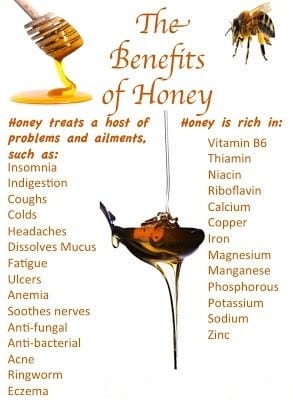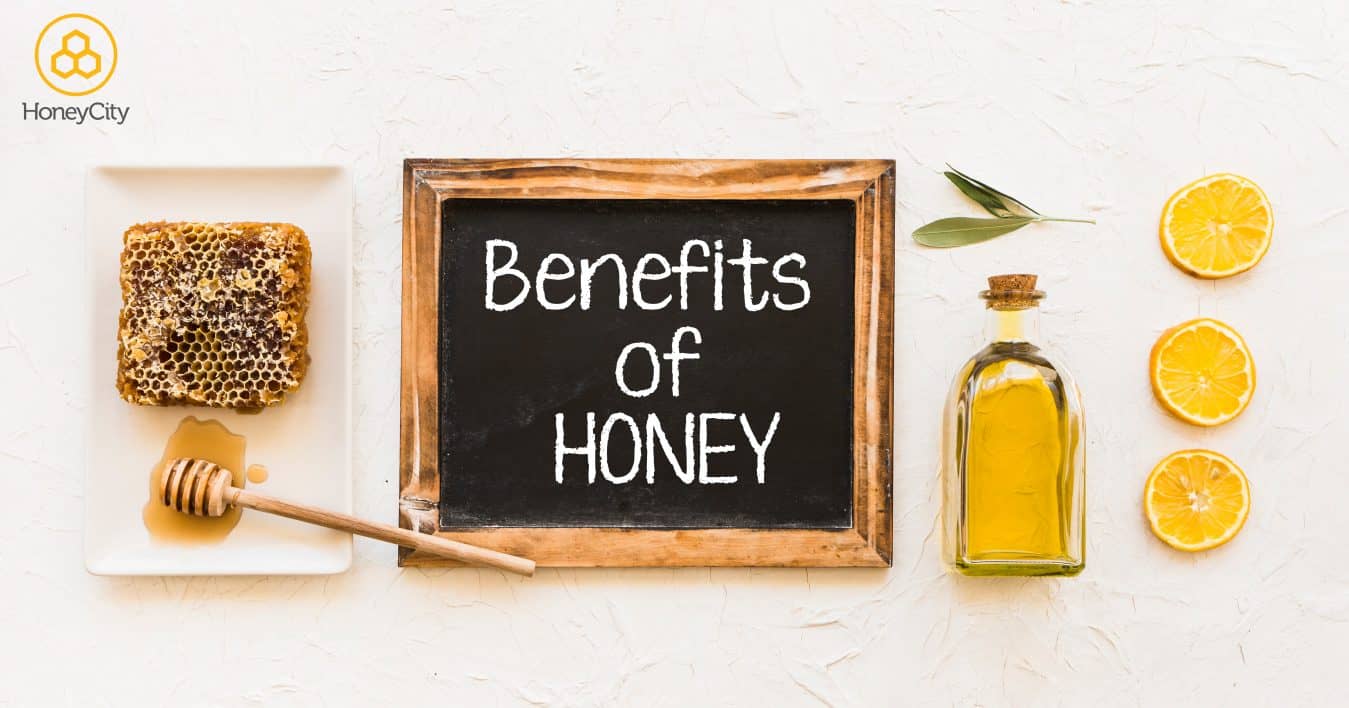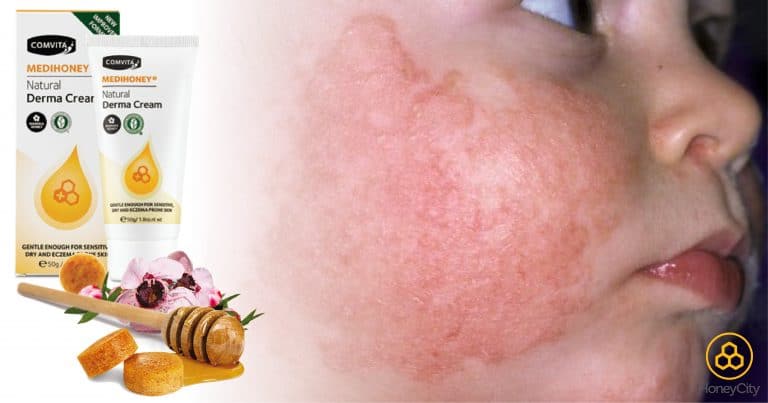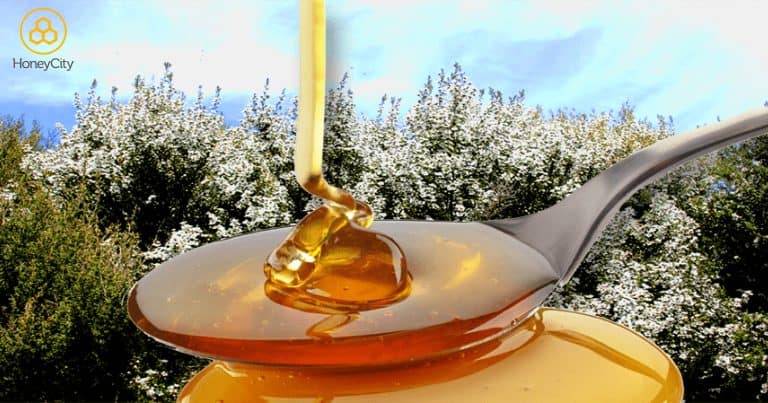The 5 Breathtaking Benefits of Honey
We have a lot to thank bees for.
They do the hard work pollinating flowers while we reap the benefits in the form of golden, luscious, and sweet honey.
Stick around to find out about the many benefits of honey!
Honey (Normal or Manuka) Nutrition Facts
Honey has been popular across the centuries and is eaten regularly today for its tremendous nutritional and immune-boosting abilities.

Honey has a healthy Glycemic Index (GI). This means that its sugars can be gradually absorbed into the bloodstream for better digestion.
You should avoid eating high-glycemic foods that would prompt an elevated release of insulin in your body. This is because the pancreas becomes stimulated and metabolises the sudden surge of glucose into the blood.
Manuka honey has an even richer nutritional profile of minerals and vitamins. It has:
- Antioxidants
- Amino acids
- Calcium
- Copper
- Iron
- Magnesium
- Manganese
- Phosphorus
- Potassium
- Sodium
- Zinc
- Vitamins B (B6, thiamin, niacin, riboflavin, pantothenic acid)
It’s also devoid of fats and cholesterol!
The nutritional content of manuka honey is up to 4 times that of normal floral honey.
Manuka honey also contains an ingredient with powerful antibacterial, antimicrobial, antiviral, antioxidant, antiseptic, anti-inflammatory, and anti-fungal properties. This is the Unique Manuka Factor (UMF).
Benefits of Honey for Adults
A look at the nutritional content of honey tells you that there are plenty of benefits to be gained.
Here are some benefits:
- Uses antioxidants to reduce blood pressure, a key risk factor for heart disease
- Helps to boost good cholesterol while reducing bad (LDL) cholesterol
- Encourages the healing of wounds, burns, and diabetic ulcers with its antibacterial and anti-inflammatory attributes
- Helps to combat inflammatory conditions, cancer and ageing linked to free radical damage
- Boosts oral health because of its natural antioxidant properties
Benefits of Honey for Children

Let’s get this clear: you should never serve any child below one honey.
If you choose to do so, you’re risking infant botulism and the possibility of death.
For children older than one, there are plenty of benefits that honey offers.
They include:
- Acting as a natural substitute to unhealthy sugar that contains plenty of essential enzymes, vitamins, and minerals
- Serving as a natural and wholesome remedy to colds, cough, and sore throats
- Boosting the immune system with its antibacterial and antioxidant properties
- Helping to regulate bowel movements and offering relief when stomach infections hit home
- Being used as an ointment to speed up healing for minor burns and wounds
How Much Honey to Give a Toddler or Child in a Day
As a general rule of thumb, this is how much honey to give a child, even for conditions like cough:
- Below one-year-old: none
- Between one and two years: two teaspoons
- Between three and six years: two and a half teaspoons
- Six years and older: three teaspoons
Honey or Pollen Allergy

As with any type of food, it’s important to test whether your child is allergic to pollen or honey first.
Avoid introducing honey until you test and make sure your child doesn’t suffer from allergic reactions!
A Spoonful or Two of Honey Is Good for You

Even though honey is a natural sweetener with benefits, you have to exercise caution when consuming it.
Limit your daily intake to 1-2 tablespoons of honey to avoid suffering from the effects of excessive sugar consumption.
If you’re wondering, it’s also okay to drink honey water daily! Mix a tablespoon in a glass of water and stir well before you gulp it down.
Remember that manuka honey is highly effective and here at HoneyCity, we sell a variety of world-renowned manuka honey from distinguished brands.







